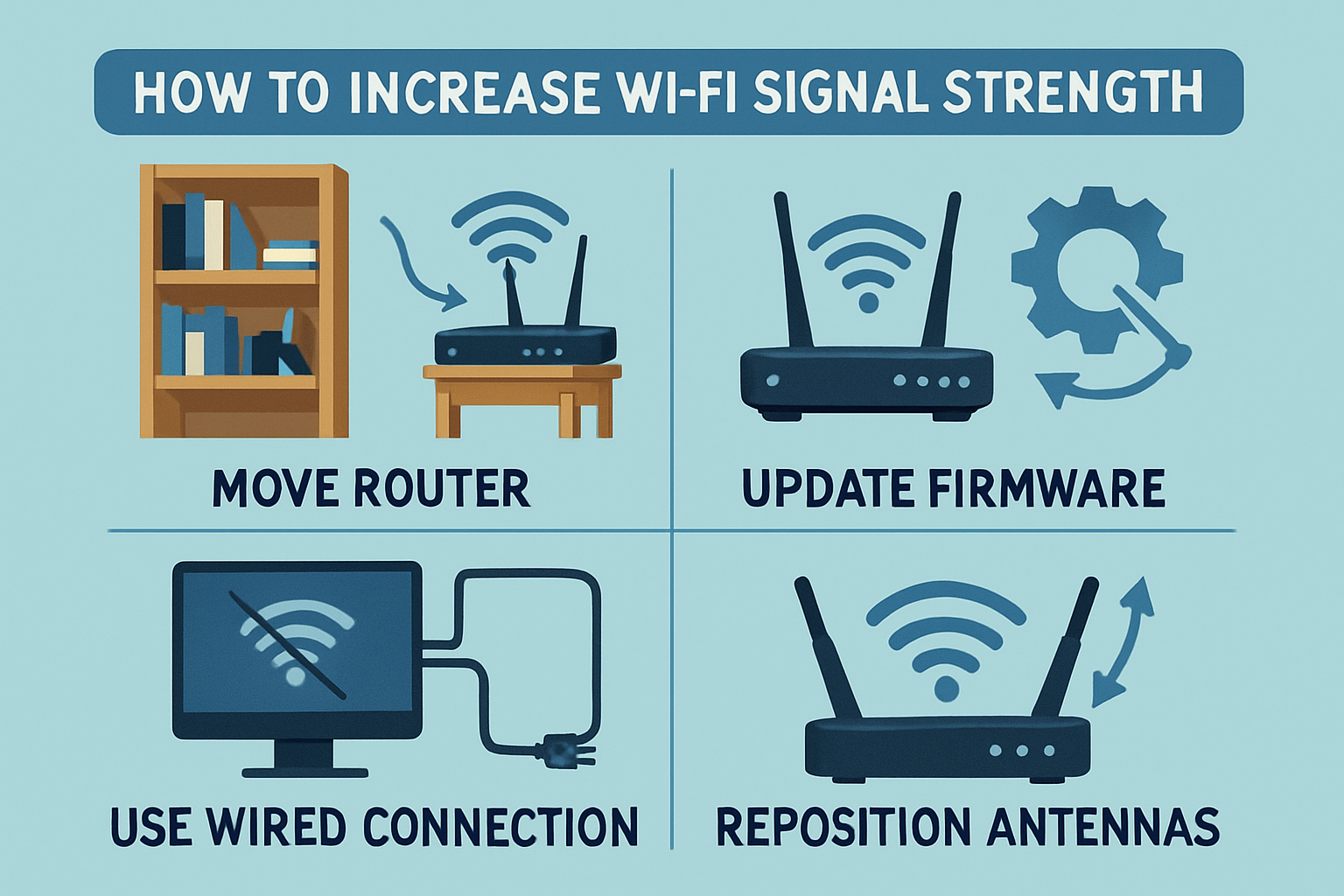1. Optimal Router Placement
Position your router in a central location within your residence or office, elevated from the ground, and free from obstructions such as walls, furniture, or appliances that may interfere with the signal.
2. Reduce Interference
Minimize electronic devices that operate on similar frequencies, such as cordless phones, microwave ovens, and Bluetooth devices, which can disrupt Wi-Fi signals.
3. Update Firmware and Drivers
Regularly update your router’s firmware and your device’s network drivers to benefit from performance improvements and security enhancements provided by manufacturers.
4. Use the Correct Frequency Band
Switch to the 5 GHz band if supported by your device and router, as it typically higher speeds and less congestion compared to the 2.4 GHz band.
5. Upgrade Your Equipment
Consider replacing outdated routers with modern models that support advanced standards like Wi-Fi 6 (802.11ax), which provide better coverage and higher throughput.
6. Install Wi-Fi Extenders or Mesh Networks
Utilize range extenders or mesh network systems to broaden coverage areas, especially in larger spaces or areas with weak signals.
7. Adjust Router Settings
Configure settings such as channel selection to avoid crowded frequencies; many routers have auto-channel features that optimize this automatically.
8. Secure Your Network
Ensure your Wi-Fi network is secured with a strong password to prevent unauthorized access that could slow down your connection.
Implementing these strategies will contribute substantially to enhancing your Wi-Fi signal strength, resulting in improved connectivity and user experience.
- Optimal Router Placement: Placing your router centrally, elevated, and free from obstructions enhances Wi-Fi signal coverage throughout your space.
- Reduce Interference: Minimize the use of electronic devices like cordless phones and microwave ovens that operate on similar frequencies to reduce signal disruptions.
- Update Firmware and Drivers: Regular updates to your router’s firmware and your device’s network drivers improve performance and security.
- Use the Correct Frequency Band: Switching to the 5 GHz band, if supported, offers higher speeds and less congestion compared to the 2.4 GHz band.
- Upgrade Your Equipment: Replacing outdated routers with modern standards like Wi-Fi 6 can significantly improve coverage and throughput.
Discover more from Archer IT Solutons
Subscribe to get the latest posts sent to your email.

No responses yet